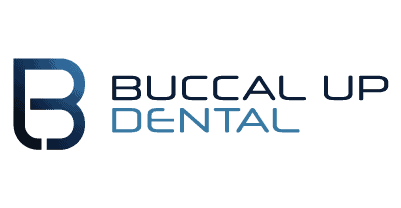
12 Dec Setting Career Goals in Dentistry for the Upcoming Year
Setting Career Goals in Dentistry for the New Year
As the New Year approaches, dental professionals find themselves at a pivotal moment to reflect on their career trajectories and establish goals for the year ahead. Setting clear, actionable career goals is essential for growth, job satisfaction, and long-term success in the dynamic field of dentistry.
Whether you’re a recent graduate, an associate, or a seasoned practice owner, the New Year offers an excellent opportunity to refocus and align your aspirations with professional achievements.

Reflecting on the Past Year
Reflecting on the past year is vital for businesses of all sizes. It offers an opportunity to evaluate performance, recognize successes, and identify areas for improvement. This process serves as a foundation for making informed decisions, setting strategic goals, and ensuring sustainable growth in the year ahead.
The first step in setting career goals for the New Year is to reflect on the past year’s achievements and challenges. Take inventory of your professional milestones, including successful treatments, patient satisfaction, or acquiring new skills.
Equally important is identifying areas where improvement is needed, such as mastering a specific dental procedure, better managing your team, or improving work-life balance. Reflection provides the context and clarity needed to set relevant and meaningful goals.
Ask yourself critical questions: What were my most rewarding moments last year? Where did I encounter difficulties? Did I achieve the goals I set for myself at the start of the year? By examining your successes and shortcomings, you can identify patterns that may help inform your next steps.
Understanding the Importance of Goal Setting
Setting career goals isn’t just a motivational exercise—it’s a strategic approach to personal and professional growth. Clear goals provide direction, boost productivity, and foster a sense of purpose. They also help prioritize tasks and allocate time effectively, ensuring that efforts align with long-term aspirations.
In dentistry, goal setting can address multiple dimensions of your career. You might aim to expand your clinical expertise, improve patient relationships, grow your practice, or even pursue new specializations. Each goal contributes to a well-rounded professional identity, ensuring that your career remains fulfilling and future-proof.
Types of Career Goals in Dentistry
Career goals in dentistry can be categorized into several areas:
- Clinical Skills Development: Advancing your technical expertise can improve treatment outcomes and enhance patient satisfaction. Goals might include mastering new technologies like CAD/CAM systems, attending workshops on minimally invasive dentistry, or gaining proficiency in orthodontics or implantology.
- Practice Management: For those managing or owning practices, goals might focus on improving operational efficiency, increasing profitability, or enhancing team collaboration. This might involve upgrading practice management software, refining patient scheduling systems, or investing in staff training.
- Patient Care: Building stronger patient relationships and improving satisfaction can be a rewarding focus. Goals might include enhancing communication skills, streamlining appointment processes, or introducing patient feedback mechanisms.
- Continuing Education and Certification: Dentistry is an ever-evolving field, making ongoing education a cornerstone of career advancement. Setting goals to attend conferences, complete certification programs, or enroll in specialized courses can keep you at the forefront of the profession.
- Work-Life Balance: Balancing professional and personal commitments is crucial for preventing burnout and maintaining overall well-being. Goals might include reducing working hours, delegating more responsibilities, or prioritizing mental health initiatives.
- Community Engagement: Volunteering or participating in community health programs can be both fulfilling and impactful. Goals in this area might include organizing free dental clinics, mentoring students, or joining professional organizations.
Setting SMART Goals
The SMART framework is an effective way to structure your career goals. SMART stands for Specific, Measurable, Achievable, Relevant, and Time-bound. Applying this framework ensures that your goals are clear and attainable:
- Specific: Define your goal with precision. Instead of saying, “Improve clinical skills,” specify, “Learn how to perform full-mouth rehabilitation.”
- Measurable: Establish criteria to track progress. For instance, plan to attend two hands-on courses and complete five cases by the end of the year.
- Achievable: Set realistic goals that align with your resources and current skill level. Stretching yourself is good, but setting overly ambitious goals can lead to frustration.
- Relevant: Ensure the goal aligns with your career aspirations and professional priorities. If your focus is pediatric dentistry, your goal should relate to that specialty.
- Time-bound: Assign a deadline to maintain focus and urgency. For example, commit to implementing a new scheduling system within the year’s first quarter.

Breaking Goals Into Actionable Steps
Large goals can feel overwhelming, so breaking them into smaller, actionable steps is critical. For example, if your goal is to specialize in implantology, your steps might include:
- Researching top training programs and certifications.
- Allocating funds for tuition and travel expenses.
- Enrolling in a course and attending the first session by March.
- Practicing the skills learned in training by performing five supervised cases by December.
Each step should have its own timeline and metrics for success, ensuring continuous progress and minimizing procrastination.
Staying Motivated and Overcoming Challenges
Sustaining motivation throughout the year can be challenging, especially when juggling multiple responsibilities. Here are strategies to stay focused:
- Track Progress: Regularly review your goals and evaluate progress. Use tools like journals, spreadsheets, or project management apps to stay organized.
- Celebrate Milestones: Acknowledge and reward yourself for achieving smaller milestones. This positive reinforcement can keep you motivated.
- Seek Support: Share your goals with mentors, colleagues, or friends who can provide encouragement and accountability.
- Learn From Setbacks: Treat obstacles as learning opportunities rather than failures. Analyze what went wrong and adjust your approach as needed.
Leveraging Technology and Resources
The digital era offers countless tools and resources to aid in achieving career goals. Online platforms provide access to webinars, virtual conferences, and e-learning modules tailored to dental professionals. Practice management software and patient communication tools can streamline operations, freeing up time for skill development.
Professional organizations such as the American Dental Association (ADA) or the Academy of General Dentistry (AGD) often offer resources, networking opportunities, and continuing education programs. Leveraging these can enhance your knowledge and expand your professional network.
Balancing Short-Term and Long-Term Goals
A balanced goal-setting approach ensures that immediate needs do not overshadow long-term aspirations. For instance, while increasing monthly patient inflow is a short-term objective, planning to open a second location might be a long-term goal. Both require attention but should be prioritized differently based on their timelines and impact.
Regularly revisiting and adjusting your goals is also essential. Life circumstances and professional opportunities can shift priorities, so flexibility is key.
Cultivating a Growth Mindset
A growth mindset—the belief that abilities and intelligence can be developed through dedication and hard work—is essential for career success. Embrace challenges, seek feedback, and remain open to new experiences. This mindset not only helps you achieve your goals but also fosters resilience and adaptability in a rapidly changing profession.
The Role of Mentorship and Collaboration
Mentorship can be a game-changer in achieving career goals. Seek guidance from experienced professionals who can provide insights, share experiences, and offer constructive feedback. Collaboration with peers can also inspire new ideas and foster mutual growth.
For example, joining study groups, attending peer-led workshops, or participating in online forums can broaden your perspective and enhance problem-solving skills.
Final Thoughts
Setting career goals in dentistry for the New Year is a proactive step toward personal and professional fulfillment. By reflecting on past experiences, defining SMART goals, breaking them into actionable steps, and leveraging available resources, dental professionals can create a roadmap for success. Staying motivated, embracing a growth mindset, and seeking mentorship will further enhance your journey.
As you embark on this goal-setting process, remember that success is not a destination but a continuous journey of learning and growth. Whether your aspirations involve mastering new techniques, expanding your practice, or achieving a better work-life balance, the effort invested in planning and execution will yield lasting rewards. Here’s to a year of progress, achievement, and excellence in dentistry!


Sorry, the comment form is closed at this time.